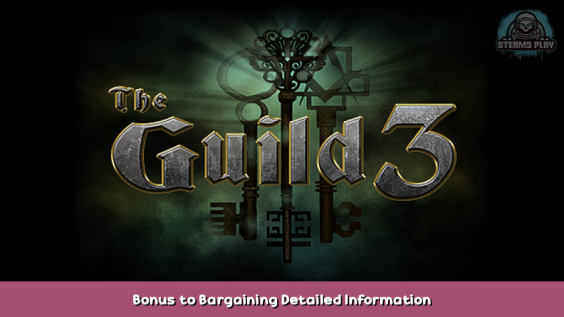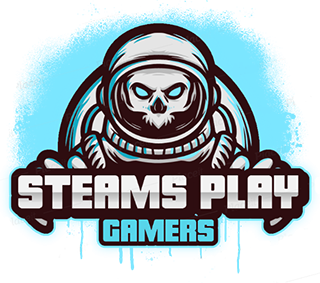
T.L.D.R.
Each “point” in Bonus to Bargaining provides marginal improvements to buying prices (-0.25%) and selling prices (0.5%) per unit, at the marketplace. In its current form, it is not a worthwhile stat to focus any character on (including transporters), it is underpowered compared to other stats, and items with “Bonus to Bargaining” as a modifier have poor ROI.
Intro
What exactly does “Bonus to Bargaining” do?
My brain tends to ask these kinds of silly, overly complex questions when it becomes sleep deprived. Yet, for some ungodly reason, I seem to give in and entertain its curiosity every ♥♥♥♥♥♥♥♥ time. So first, I went to Google and searched for my answers. Unfortunately, it seems the wiki, guides, and forum discussions have still yet to uncover many of this games complex mechanical secrets. So, here is a guide outlining my thought process, research, and findings about the mysterious “Bonus to Bargaining” (“BB” from here on out) mechanic.
Hypothesis
My initial hypothesis was that every point in BB was a direct % increase in total selling price and a direct % decrease in total buying price. I realized that I could then spend ~$850 for “Free Citizens Garb” for my transporters (which gives +8 to BB, or 8%) which would mean the clothing would pay for itself after the transporter bought/sold ~$11K in goods ($850 / 8%). Not bad considering one transporter can easily buy/sell a few thousand worth of goods each day (depending on business).
The First Test
First, I went and purchased myself a nice Free Citizens Garb to replace my not-so-glamorous “Robust Clothing”. That +8 BB pop-up gave me a rush of adrenaline, but unfortunately, I needed to get a baseline measure of prices first so the Free Citizens Garb was tucked into my “Robust” pocket to start.
As I am playing through a barber / scholar game, I decided to test the BB on some purchases my barbershop transporter would frequently make – 20 Jasmine. The baseline price was $340 and, after swapping into my new swag, the improved price was…
$340
Devastated by having my initial hypothesis crushed (and $850 poorer) I was determined to continue testing to understand what exactly (or roughly) the actual impacts of BB was.
Ongoing Tests / Results
I will update with a table showing detailed results when I figure out how but…
After testing about 10 items at various quantities, it looks like, per point in Bonus to Bargaining…
– Unit purchase prices are reduced by ~0.25%
– Unit sale prices are increased by ~0.5%
– The calculation happens on a PER UNIT basis (i.e. (Base Unit Price * BB Adjustment) * Quantity). This means that purchased goods with individual unit prices under ~$50 DO NOT benefit from a cost reduction, nor do sold goods with unit prices under ~$25 benefit from price increase.
– Rounding is applied to the adjusted price. The rounding for lower priced goods is more extreme (as expected) and seems to favor rounding down the benefit.
– That means, to break-even on my fancy new “Free Citizens Garb” providing +8 BB, my transporter would have to sell at least $42K (i.e. $850 / 2%) in goods with >$50 unit value; or they would have to purchase at least $21K ($850 / 4%) in goods with >$25 unit value.
– This showcases that this item, in particular, has TERRIBLE R.O.I. compared to other investments. It truly is GARB.
Conclusions / Recommendations
My tests conclude that, not only are items touting “Bonus to Bargaining” unlikely to have an ROI, but that the “Bonus to Bargaining” stat itself is mostly useless. In my opinion, both of the following should be implemented by the devs whenever possible:
1. Buff the “Bonus to Bargaining” bonus. If you need to implement a more complex calculation to avoid price exploitation (i.e. buy for $5, sell for $6) fine. But, currently, the stat has negligible impact on the game. Even worse, it is currently so much worse than many other stats that could be prioritized by players, but they have no easy way to know. Leading me to my next suggestion:
2. Explain this mechanic (and pretty much all others) more clearly in tool-tips or at least in the tutorial window. Simply providing a description that “Bargaining enables the character to achieve better prices when purchasing and selling goods at marketplaces” is far too vague. The importance of a stat / modifier (in any game) is not just knowing what it does, but to what extent it impacts the intended action. A player could easily read this vague description and really think this stat would be great to focus on for transporters (like I initially thought), spend a bunch of money on items and level up transporters Char, only for it to be next to worthless in reality. And because of how limited the information is, they wouldn’t even know. I think its important that games / simulations provide players with clear “feedback” on the result of their decisions.
Unfortunately, this mechanic (as well as several others) are an unfortunate waste of potential. Players simply do not have access to clear information about stats and the actual impact they will have. Providing more details on the inner-working mechanics would allow for more genuine strategy and weighing-of-options on the players part, and a feeling that they have more control over what’s happening in their simulation.
Further, regardless of whether a player knew how this stat worked, the fact that it is so poorly balanced (as I’m sure others are) makes players choices feel almost meaningless. “Why would I ever choose to focus on / spend money on a stat that is objectively worse than others?” This forces players to identify a “meta” and stick to it, rather than exploring for new strategies or allowing multiple types of decisions to be legitimate.
Essentially, I think it would be better if players had access to clear information on their decisions, and that stat impacts were balanced so that we had to make a decision on what would be best for the outcome we wanted. Do I want my transporter to move noticeably faster, or get reasonably better prices at the market? There should be trade-offs, not objectively superior options. I wonder if this is part of the reason many players don’t feel the same “connection” to this game as they did to Guild 2: because many of their choices / options are vague, low-impact, or pre-determined by clear-cut superiority, rather than creative and chaotic like Guild 2.
Epilogue
If you made it this far, I hope you enjoyed reading over my thought process, tests, and rant. My goal here is to provide some level of clarity around one of many murky mechanics in this game (which I really do like and see potential in). Please leave a comment below with your own opinions and, if you have any other mechanic you’d like me to consider looking into, let me know.
Thanks 🙂
P.S. This is my the first guide I’ve ever written and I intend to edit it to improve formatting / cut down words when I have time. Please let me know of any suggestions / constructive criticism you have.
Hope you enjoy the post for The Guild 3 Bonus to Bargaining Detailed Information, If you think we should update the post or something is wrong please let us know via comment and we will fix it how fast as possible! Thank you and have a great day!
- Check All The Guild 3 Posts List


Leave a Reply